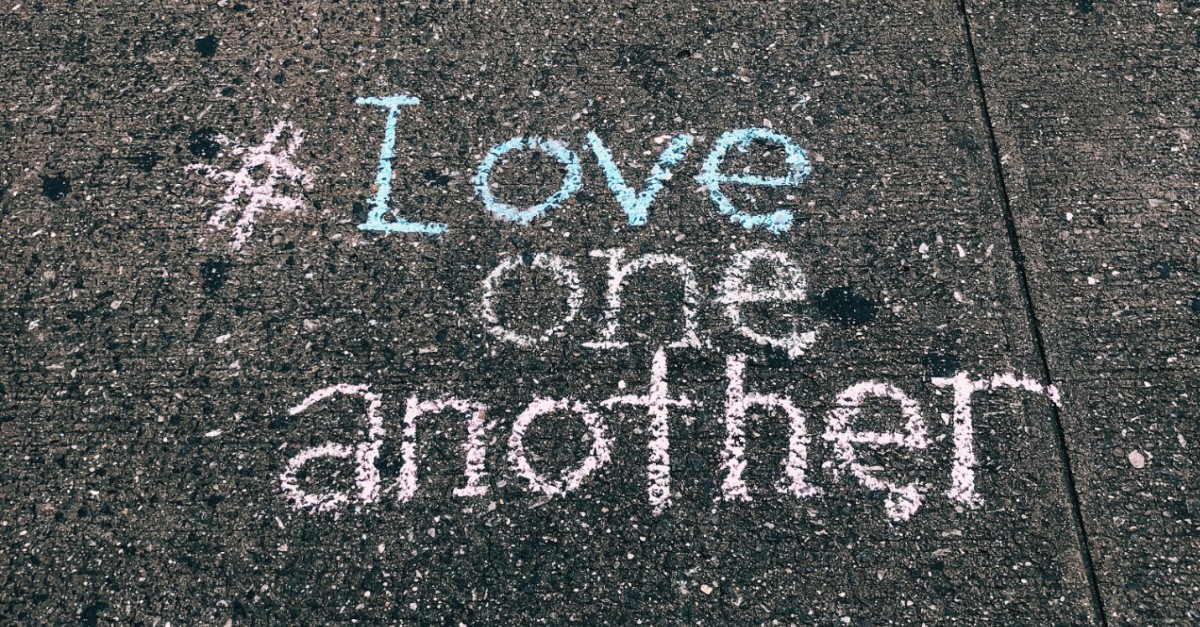
When I was a kid eating my Smurf Berry Crunch, one question never crossed my mind. “Gee, I wonder who makes these, what kind of company are they, and are they ethical?” I didn’t think about the bookkeeping practices of Mattel, I just enjoyed trying to defeat Skeletor with my He-Man action figure. It never crossed my mind to think about the global economics of purchasing my Nintendo from Japan.
That’s not the case with Generation Z. They ask more questions. They want to know how a company makes their products. Do they use ethical practices? Do they treat their employees well? Do they steward the environment with the materials used? And they want to know why a company does what they do. Are they only in it for the money or are they trying to make a difference? Are they giving back?
I never asked these questions. But many of the people who comprise Gen Z are asking them. Companies are learning this and seeking to put authenticity at the forefront of their marketing (which is a tad ironic, in my opinion). They know that if they don’t put “why” at the core of their business, they’ll lose this important demographic.
This applies to more than businesses. Generation Z is asking the same type of questions to the church. Are you authentic? They want to know not only what we say we believe, but if we actually believe what we say we do. Russell Moore makes this astute observation:
We now see young evangelicals walking away from evangelicalism not because they do not believe what the church teaches but because they believe the church itself does not believe what the church teaches. The presenting issue in this secularization is not scientism and hedonism but disillusionment and cynicism. [1]
In other words, the pressing need of the hour is authenticity. But what does that mean?
[1] https://www.russellmoore.com/2021/04/15/losing-our-religion/
Photo Credit: ©iStock/Getty Images Plus/anyaberkut

How Is Authenticity Different from Honesty?
Authenticity to many in our culture is synonymous with “be who you really are.” There is this idea that we have some authentic self that is buried deep down within—repressed by our culture, religion, fear, parents, or any other source. To be authentic, then, is to be consistent with who you really are internally.
This isn’t entirely wrong. In fact, there is a great deal of truth here. The problem, though, is that we’ve dismissed any notion of our identity being given to us from an external source instead of something that solely arises from within. To put that differently, who gets to decide what is the real us?
The Bible teaches that humanity is broken and marred because of our rebellion. That means that the “real you,” the one that wants to only wear dirty sweatpants, eat Cheetos, and watch hours of YouTube videos—likely isn’t as authentic as you think it is. That is probably what the Bible calls the old man.
In a recent article for Relevant, Stephen McAlpin highlights these differences. He says,
Thus, authenticity in the Church is the quality of our exposure to brokenness and adornment in God’s grace. An authentic person is one who is both privately and publicly putting off the old self and, by God’s grace, putting on the renewed self.
This kind of authenticity expresses itself differently in people based on their unique journeys, but it is unmistakably glorifying God. [1]
In other words, authenticity isn’t being honest with your false self; it’s being true to who God has made you to be. We like to try to relate to God out of a false sense of self. The problem with this, though, is that God doesn’t relate to the imaginary. He relates to us as we actually are. This is why the Bible calls us to be authentic.

Does the Bible Talk about Authenticity?
Authenticity isn’t the typical word used in Scripture. It will likely be a word like sincere or truthfulness. In the Scriptures, authenticity is tied to biblical truth. It means to believe, live, and act in a manner that is consistent with who we are. And that is only defined and shaped by the gospel.
When the Scriptures talk about being sincere it means to acknowledge both our brokenness and rebellion but also to be honest about the redemption which God has brought about in our life. Psalm 51:6 puts it this way, “You desire truth in the innermost being.” That means that God isn’t looking for your carefully curated highlight reel but rather to relate to who you are. That doesn’t mean you have to pretend to be more broken and worthless than you actually are. But it also doesn’t mean that you need to put on a façade of being put together. Just be you.

If you don’t like hypocrites, you’re in good company. Jesus often called out the hypocrisy of the religious leaders. But even here, we need to know that this was motivated out of love and not mere frustration. The Pharisees would never relate to God if they kept holding onto their imaginary identities. They’d be swallowed up by their false selves. And what is worse, they were leading others astray, too—they were encouraging other people to fake it to fit in.
The Bible does indeed value authenticity. But we also need to understand that Christ is the only fully authentic human.
Photo Credit: Unsplash/Jon Tyson

Christ Is Fully Authentically Human
Sometimes, when we think about the perfection of Christ and how he never sinned, we might be tempted to think that He didn’t really understand what it means to be human. But that’s quite the opposite. Jesus is what humanity was supposed to be like. He is the most fully authentic human that ever lived.
In His humanity, Jesus experienced all of the things we do, like hunger, fatigue, joy, sorrow, and even deep anguish. But He did this without sin (Hebrews 4:15). That means that He was never marred by inauthenticity. He never had to battle a false and distorted self that sin brings upon us. He didn’t wear masks or hide behind self-made identities. Jesus lived fully aligned with God’s plan for Him. And He shows us what it means to perfectly bear God’s image. His authenticity wasn’t self-expression but rather obedience to the Father, even obedience to the point of death (Philippians 2:8).
If you want to know what authenticity looks like, well, look no further than Jesus. And it is in Christ that we find our own authenticity.
Photo Credit: iStock/Getty Images/PlusBoonyachoat

How Can I Be More Authentic?
How can you be authentic if you don’t actually know who you are? It’s not just being an open book and expressing how you feel in the moment. That’s a step in the right direction. But we need to acknowledge that sometimes what we feel and think is only an expression of a false-identity. Sin has marred us. Therefore, the first step in being more authentic is to understand that our identity comes from God and not us.
If you want to be truly authentic, you have to start with your identity. And that’s not something you create. Galatians 2:20 says, “I have been crucified with Christ, and I no longer live, but Christ lives in me.”
Being “crucified with Christ” is a key part of that. It’s only when our false self dies that we’re able to embrace our true self. The gospel is what gives us the strength to be honest. We know because of what Christ has done for us that, we are accepted with all of our distortions. We don’t have to pretend. It isn’t some future version of us that God loves, and it’s who we are today—warts and all. But the gospel also doesn’t keep us there. It is transformative.
Every analogy breaks down at some point, but perhaps this one will help. Imagine a boy who is playing outside and gets himself absolutely disgusting with mud and grime. While he’s filthy like this, his mom probably won’t let him into the house to sit on the new couch. He needs to be cleaned up. But it doesn’t mean that he is any less her son. He’s loved and accepted even with mud all over him. But he also needs to take a shower.
Now imagine that this boy began to think that his true self was as the mud-monster. While he continues to embrace this foolishness, he’ll be unable to experience the fullness of being a part of his family—no watching television on that couch while you’re the mud monster. But perhaps for a season, while still in this delusion, Mom might make him a palette of comfortable old blankets. She’ll relate to him, at least in some sense, even while he’s adopted this silliness.
He's not being authentic because he’s not really the mud-monster. Real authenticity means accepting that he is part of the family and he’s not meant to have all this mud on him, which means that authenticity will necessitate his showering. But his parents are gracious and patient and they know that little boys don’t much like to shower. This is why sometimes it gets confusing because the little mud monster is part of the family, and it looks like his silly ideas are being tolerated. And at other times, Mom is a bit sterner and practically throws him into the shower.
All of this is to say that real authenticity is harder to come by than we might think. But someday, we will be who we truly are because we will see Him as He truly is.
"Dear friends, we are God’s children now, and what we will be has not yet been revealed. We know that when he appears, we will be like him because we will see him as he is."
Some day, we will all be authentic.
Photo Credit: Austin Kehmeier/Unsplash
Originally published Wednesday, 15 January 2025.
